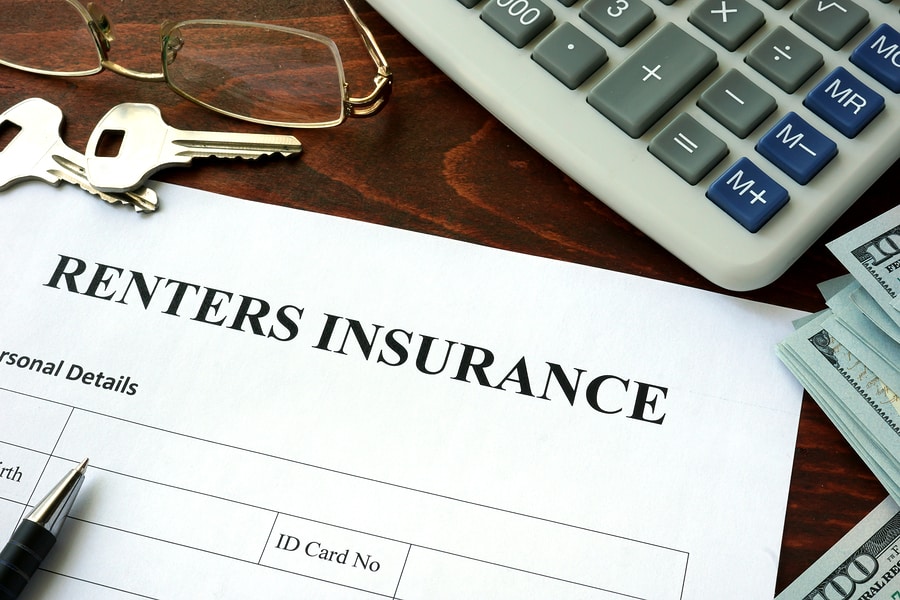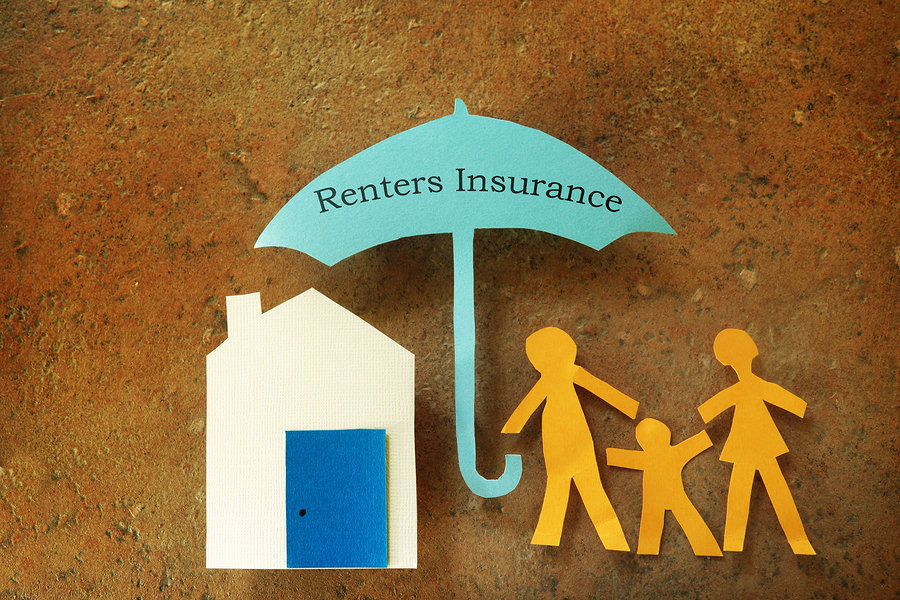
Level Up Your Business Today
Join the thousands of people like you already growing their businesses and knowledge with our team of experts. We deliver timely updates, interesting insights, and exclusive promos to your inbox.
Join For Free💳 Save money on credit card processing with one of our top 5 picks for 2025
Renters insurance for small businesses is a valuable component of an overall risk management plan for business owners. Find out why in our guide!

If you rent a storefront for your small business (or plan to in the future), business renters insurance is likely a requirement for your lease. Even if your landlord doesn’t require you to carry small business renters insurance, you should still consider adding a renters insurance for business policy as part of your risk management plan. Doing so is a great way to lower your overall risks as a small business owner.
Read on to learn everything you need to know about business renters insurance, including what it covers, where to buy a policy, and how much it will cost you! Then, have a look at your best commercial renters insurance options.
Table of Contents
Business renters insurance is similar to homeowner’s insurance in that it covers certain accidents to the property and building you’re renting as a small business owner. Small business renters insurance is specific to your rental needs. So no matter what type of space you are renting (warehouse, large space, multiple small spaces, a proper storefront), there is a renter’s insurance option for you.
Most renters insurance for business policies are a combination of a general liability policy (covers basic accidents and disasters), commercial property protection, and coverage for items/supplies/equipment you may house inside your rental location.
A good business renters insurance policy will include a bundle of different coverage options to adequately insure your rental property and your personal property stored at your rental location in the event of a lawsuit, disaster, or accident. How you pay for those plans before and after a claim will depend on your needs.
When you sit down with an insurance expert or broker, you’ll need to decide between the two main types of business renters insurance options: a replacement cost policy (RCV) or an actual cash value policy (ACV). The two insurance plans offer different coverage and price options.
Business renters insurance will bundle liability and property-specific policies for rentals. The combined policies will cover the same things as most general liability and property policies.
It’s easy to assume that when you get renters insurance for a business policy, you’re covering yourself from all disasters and all losses, but that’s not the case. Each policy has certain exemptions and/or additional endorsements to round out the policy.
Cost may be a deterrent for some small business owners when looking at business renters insurance. Insurance is a purchase against your future, even though it can feel like you’re throwing away money you may not have for things that may never happen. It’s true that insurance is in the business of worst-case scenarios; however, your small business story shouldn’t end with an accident or unexpected disaster that forces you to close your doors.
There is no surefire way to predict what renters insurance will cost for your business. Many factors, including crime rate, location, number of employees, number of customers, and your general liability risks, will impact your overall costs.
Insureon has shown that 16% of small business owners pay less than $500 per year, and 42% pay between $500 and $1,000 annually for property insurance. It’s important to note that bundling commercial property insurance and general liability insurance into a policy known as a business owner’s policy (BOP) costs less per year than the policies might if purchased separately. Meet with a broker or insurance agent to calculate your monthly premiums.
Along with bundling, taking reasonable safety and security measures may help lower your premium.

When renting a business location, it’s important to sit down with the landlord and your lease agreement and outline what is specifically covered by their insurance plan. Once you know what’s covered and insured on their end, you can work to fill in the gaps with your own insurance. Here are some questions to ask yourself about your business as you start thinking about insurance:
A good policy will bundle general liability and a basic commercial property policy. The general liability will protect you in the case of a lawsuit or if someone sustains an injury at your rental space and needs medical assistance.
With that standard general liability, you are also protected with legal representation in the event of a lawsuit due to slander or libel. The commercial property component will cover rental property damage caused by fire, theft, or even vandalism caused by rioters.
If you are concerned about not being able to pay your employees if you have to close your doors or if you know you live in an area prone to flooding, you might consider extra coverage to ensure you are truly protected.
Business interruption insurance helps pay employees and protect lost income, flood insurance will protect from water damage, and Errors and Omissions insurance will help cover a lawsuit because of bad advice (if you’re in the business of charging money for advice, that is). Meet with an insurance agent or broker to discuss additional coverage options specific to your business.
Learn more about other types of business insurance you may need as a small business owner. In particular, if you own the space your business operates from, you’ll want to investigate the best commercial property insurance providers.
There are four easy steps for buying insurance: Know what insurance you need, gather your business documents, do some comparison shopping, and purchase!
Websites such as Insureon, CoverWallet, and Coverhound offer comparison shopping, so you can view several offers at once. Start with a personal insurance company (perhaps where you have homeowners insurance or car insurance) and see if your company offers a bundle for including business insurance into your plan. Take that number and then compare.
Protecting your small business means properly insuring it. Rental insurance doesn’t have to be an extraordinary expenditure, and policies can often be found for low monthly costs with bundling options and risk management strategies.
Once you’ve itemized the gaps in coverage between your landlord’s policy and the policies you are looking into buying, you can decide what you need and go from there. An insurance expert will take the time to explain coverage options and walk you through types and choices. Now that you’ve finished this article, you can go into that meeting armed with more knowledge!
Stay up to date on small business insurance by checking out our business insurance blog posts.
Get in touch with a real human being on the Merchant Maverick team! Send us your questions, comments, reviews, or other feedback. We read every message and will respond if you'd like us to.
Reach OutGet in touch with a real human being on the Merchant Maverick team! Send us your questions, comments, reviews, or other feedback. We read every message and will respond if you'd like us to.
Reach Out
Let us know how well the content on this page solved your problem today. All feedback, positive or negative, helps us to improve the way we help small businesses.
Give Feedback
Want to help shape the future of the Merchant Maverick website? Join our testing and survey community!
By providing feedback on how we can improve, you can earn gift cards and get early access to new features.
 Experience competitive rates, excellent customer support, and a fast & easy claim process. Request a free analysis today.
Get Started
Experience competitive rates, excellent customer support, and a fast & easy claim process. Request a free analysis today.
Get Started
Help us to improve by providing some feedback on your experience today.
The vendors that appear on this list were chosen by subject matter experts on the basis of product quality, wide usage and availability, and positive reputation.
Merchant Maverick’s ratings are editorial in nature, and are not aggregated from user reviews. Each staff reviewer at Merchant Maverick is a subject matter expert with experience researching, testing, and evaluating small business software and services. The rating of this company or service is based on the author’s expert opinion and analysis of the product, and assessed and seconded by another subject matter expert on staff before publication. Merchant Maverick’s ratings are not influenced by affiliate partnerships.
Our unbiased reviews and content are supported in part by affiliate partnerships, and we adhere to strict guidelines to preserve editorial integrity. The editorial content on this page is not provided by any of the companies mentioned and has not been reviewed, approved or otherwise endorsed by any of these entities. Opinions expressed here are author’s alone.
 Experience competitive rates, excellent customer support, and a fast & easy claim process. Request a free analysis today.
Get Started
Experience competitive rates, excellent customer support, and a fast & easy claim process. Request a free analysis today.
Get Started